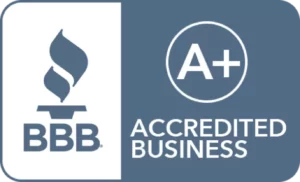Real estate investing has long been the alternative asset of choice for Self-Directed IRA investors. Why you may ask? While there are bad housing markets (see 2008), generally, investing in real estate is a safe decision. Rentals provide a steady flow of income, fix and flips can turn large profits and commercial properties aren’t affected that much by a turbulent economy. Here, we’ll show you how easy it is to use retirement funds for real estate investing.
What is a Real Estate IRA?
Before jumping into real estate investing with your IRA, it’s important to know how it works. A Real Estate IRA is another name for a Self-Directed IRA that allows you to invest in properties. It doesn’t have to invest in real estate exclusively. In fact, it’s best to diversify your IRA holdings with stocks, bonds and other alternatives. This way, if there is another housing collapse, your retirement funds won’t lose all of its value. It’s always imperative to work with a financial advisor to make investment decisions.
Setting up a Self-Directed IRA LLC
First, it’s best to use a Limited Liability Company (LLC) when setting up your Self-Directed IRA. A custodian, such as IRA Financial Trust, can do all the necessary paperwork and filings, so you never have to step foot in a bank. We’ve partnered with Capital One, so you know your money is secure.
Next, you need to fund the IRA. Generally, one transfers, or rolls over, funds from another retirement account, such as a 401(k) or other IRA to get started. The IRA funds are then invested into the LLC. The LLC is considered a flow-through entity, which means any gains from the LLC will flow back into the IRA tax-free.
Once you have established an account with the bank, you can then have checkbook control of your IRA funds. This allows you to make any investment you wish, in a timely matter and without custodian consent. You’re all set to start real estate investing with your IRA!
Real Estate Investing Tips
Research before you buy
Before committing much of your retirement savings into a piece of property, be sure to do your due diligence. Decide if you want to become a landlord with a rental property, or would rather put sweat equity into a flip. Know the market you plan on purchasing in and what types of value remodeled houses get and/or rent charged. It’s good practice to look at multiple properties and speak with real estate agents and other investors.
Know the cost
All costs involved with the property should be handled through the IRA. It’s not good practice to mix IRA and personal funds. Rules can get a little tricky and cause your IRA to become disqualified. Therefore, all expenses, including those involved in the purchase or sale, as well as any maintenance and other fees, should be available in your IRA. Further, all profits (such as rent or sale earnings) must go back into the IRA.
Know the rules
The most important rules to be aware of when real estate investing are the prohibited transaction rules. Specifically, the disqualified person rules. Essentially, your IRA must be the sole beneficiary of the tax advantages of an IRA. Disqualified individuals include YOU, your spouse, any lineal ascendants and descendants (such as your parents and children) and entities that the IRA a controlling interest in. For instance, you cannot purchase a vacation property with your Self-Directed IRA and then stay there yourself. This is an impermissible benefit since you get an added benefit, instead of the IRA itself. It’s okay if a sister or uncle stays there, but not your father or grandson.
What if you need a loan?
As stated earlier, the purchase price of a property should come from your IRA. However, if you find a great opportunity and need additional funds, a loan may be utilized. The caveat is that the loan must be non-recourse. You, as the IRA owner, cannot personally guarantee the loan. Therefore, the lender could only go after the property being bought if you break the loan terms. If you do go this route, you will be subject to the UBTI tax.
Conclusion
As we said earlier, real estate investing is popular for a reason. The investment options are endless and the potential for real wealth is there. Keep in mind, that IRA Financial does not offer investment advice. We are simply educating you on everything you can do with a self-directed retirement account. Be sure to work with a financial advisor to plan a strategy according to your goals.
If you have any questions about a Real Estate IRA, feel free to call us @ 800.472.1043 or fill out a contact form and we’ll call you!











